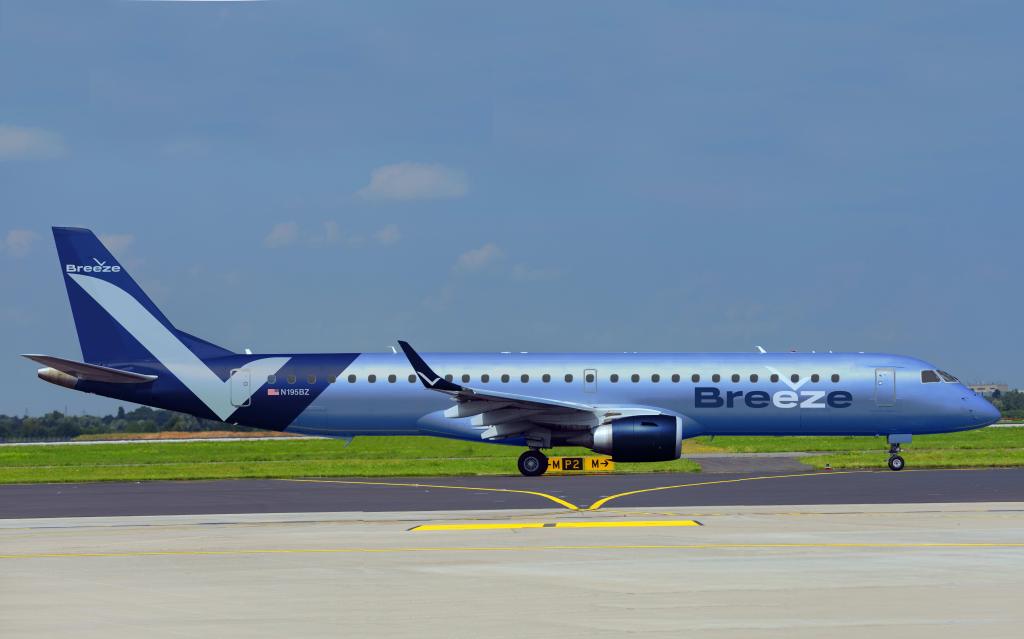A new U.S. airline from serial aviation entrepreneur David Neeleman will require flight attendants to enrol into a full-time online university course and live in shared accommodation provided by the company according to a job ad recently posted by the airline. Breeze Airways is set to launch next year and will be based in Salt Lake City where Neeleman hopes to tap into a market of previously overlooked smaller city pairs that have been ignored by the big players.
Breeze will be Neeleman’s fifth airline startup after launching well-known brands like jetBlue more than 20 years ago, as well as Canada’s WestJet and Brazilian airline Azul. Neeleman, who is originally from Brazil but was brought up as a Mormon in Salt Lake City, has also attempted to turn around Portugal’s loss-making TAP Air.
The COVID-19 pandemic might make it a particularly tough time to launch a brand new airline but Neeleman believes there’s space for another low-cost airline with routes likely to first concentrate out of its Salt Lake City hub. “There are literally hundreds and hundreds of city pairs that are crying out for non-stop flights,” Neeleman said earlier this year, while promising Breeze would be the “world’s nicest airline”.
But Breeze’s flight attendant recruitment policy has got many seasoned airline professionals scratching their heads as they try to work out what Neeleman is attempting to achieve.
Going completely against the grain, Breeze is only looking for current Utah Valley University students or applicants who are willing to sign up to a full-time four-year online course. In return, the airline will provide shared accommodation, transportation to and from the airport, a fixed monthly salary and one paid trip home per month.
In contrast, no other U.S. airline offers accommodation for its flight attendants and expects staffers to get to work on their own steam. Salaries can also vary month by month depending on how many hours a flight attendant flies.
While Breeze says it will cover up to $6,000 in university fees per year, that might still leave flight attendants covering some of the tuition costs themselves. In other words, this job opportunity might only work for prospective flight attendants who also really want to get a college education – something that isn’t a prerequisite at other U.S. carriers.
What Breeze is attempting to achieve with this unique education and employment offer, though, has quickly divided opinion. On the one hand, Neeleman’s new airline could offer university students a once in a lifetime helping hand to get a subsidised college education, while earning extra money on the side and learning life skills that will benefit them when they move on with their careers.
But for people who see being a flight attendant as a career in itself, Breeze’s offer is nothing short of a scandal. Critics argue Breeze is deliberately targeting young and impressionable students who will be effectively forced out by the time they’re 25 – just like the old-school employment practices that airlines abandoned with the advent of equal opportunity laws.
The need to live in shared accommodation will also likely exclude applicants who have children or a partner, while the offer of a monthly wage could mean flight attendants earn significantly less than their peers at other airlines (although Breeze hasn’t yet revealed its full remuneration package).
Some of these ideas aren’t particularly new on a global scale. In the Middle East, it’s common practice to provide company accommodation for foreign ex-pat crew, while some airlines in the UK place trainee flight attendants into further education programs in order take advantage of government tax breaks.
And across Europe, a number of airlines specifically hire university students who work part-time as flight attendants during school holidays in order to temporarily increase the workforce during periods of high demand.
For now, we’ll have to wait and see how this pans out. Breeze is yet to reveal when, exactly, it plans to launch scheduled services, although more details are likely to be announced early next year.




